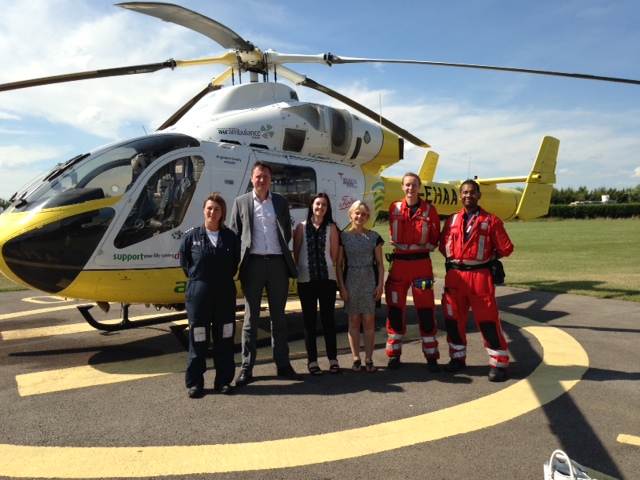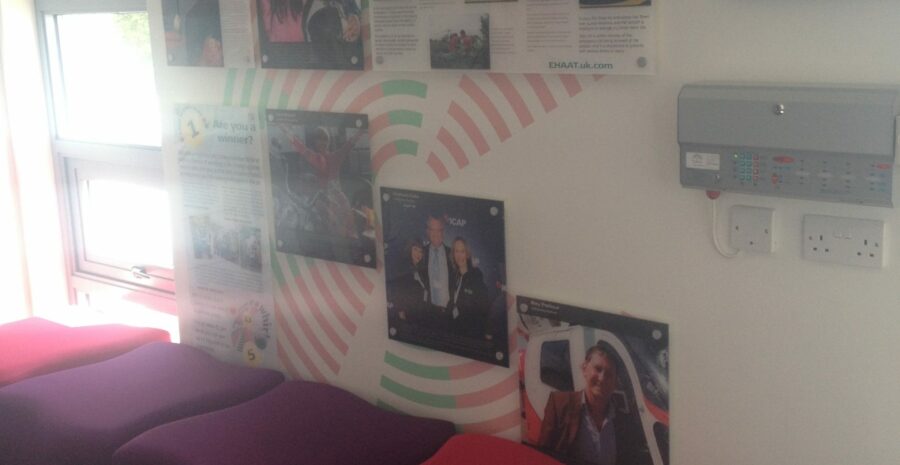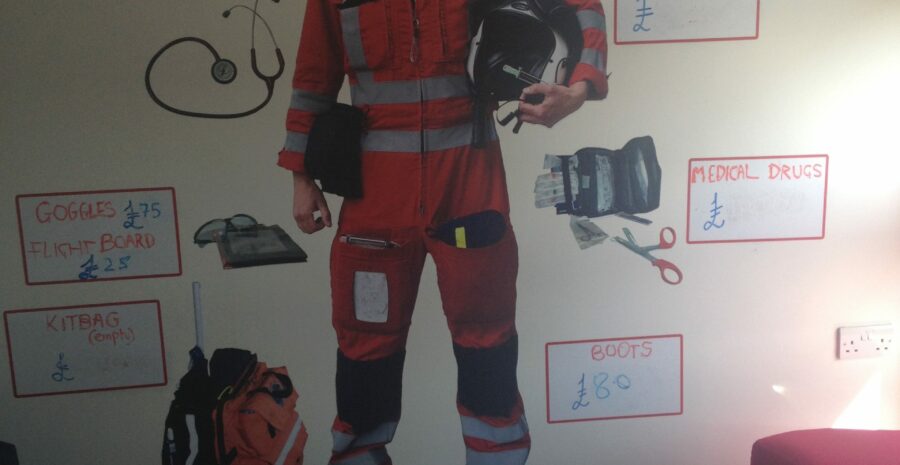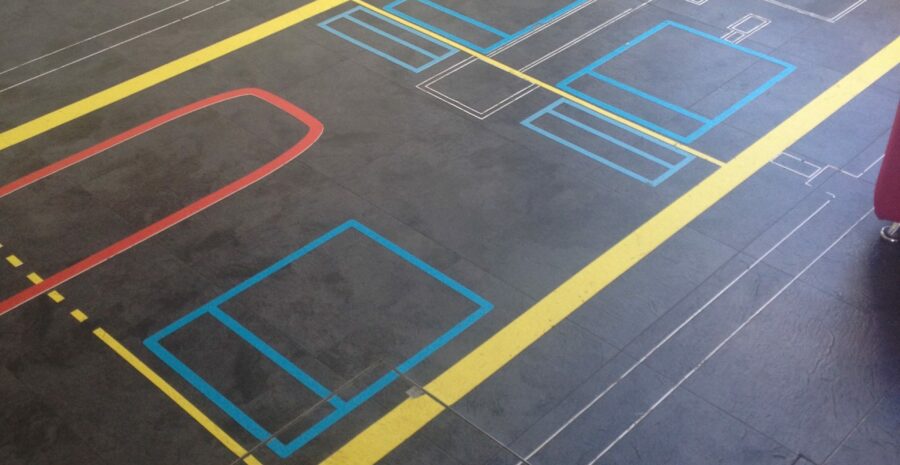In light of the new sponsorship of the Essex Air Ambulance Motorcycle Run in September, Devitt Insurance spent the afternoon with the Air Ambulance Aircrew based in Earls Colne, near Colchester. We met the team; Erica, Critical Care Paramedic, Ash, HEMS Doctor and Nicky, Pilot. We got to see the workings of the helicopter; the equipment they use and how the vital funds you raise help to save people’s lives. We even got the chance to ask them a few questions…

How often are you get called out?
Nicky: We tend to be busy in the summer to the winter, so probably in the winter it would be 1 or 2 call outs a day and in the summer between the two aircrafts it can go as high as 6, 7 or 8 call outs between the two helicopters.
Motorcyclists tend to do more riding in the summer; quite a lot of people put their motorbikes away in the winter. The roads aren’t so good and it gets darker so people get their fun toys out in the summer. There’s definitely more motorcyclists out in the summer but everyone is out and about doing more. Riding their horses, on their pedal bikes, that’s when people do DIY and go climb up ladders, cut down trees, fix their roofs and clean their windows or get their houses worked on by builders so that’s when we find we have a lot more trauma. The medical jobs such as cardiac arrests, we go to are fairly steady throughout the year.
What is the process you go through when you get a call for a job?
Erica: The ambulance service receive all of the emergency calls for the east of England, one of the critical care paramedics is based in the ambulance control room in Broomfield and scans all the emergency calls ultimately making the decision as to whether the helicopter should attend. For example, if a call comes in for a 2 year old cardiac arrest we will send the air craft out immediately; you may recieve crew requests where the call may not have required immediate emergency action initially but some critical care assistance is needed, for which we will send an aircraft.
The other category is calls that we interrogate. A critical care paramedic will scan through the information that comes through, and then we will either call back the crew or we will call back the initial caller who called 999 to get more information.
Based on that we will then decide if we are going to task an aircraft, or a BASICS voluntary Doctor, or we don’t think it’s necessary for the aircraft and we believe the ambulance paramedic team can address it. The call is received at the airbase on the ‘red’ phone (which is actually beige). We then get the map board, take the initial grid reference and the nearest, biggest town and inform the Pilot who will prep the aircraft.
We then get the actual incident location and what the tasking is; what type of call we are going to be going to. We get our helmets on, lock everything up then get in the aircraft and we do our pre-flight checks before we take off.
Nicky: That all takes about 3 minutes from the phone ringing. It’s a very quick helicopter to start up so we have a very fast response time. The whole aim is to get the Doctor and Paramedic to the patient as quickly as possible so we need immediate readiness at all times and a helicopter that is quick to start up and it goes very quickly. So 150miles an hour in a straight line, don’t have to worry about traffic and we’re normally taking a minute to picking a landing site as close to the patient as possible
Can picking a landing position be quite difficult?
Nicky: It’s much more difficult in towns than in villages so you are looking for perhaps a park, a little green area by the side of the road. If it’s a road traffic accident and if it’s appropriate then the police will close the road so we’ll land in the road and that makes life very easy but probably about 50% of the jobs are in a difficult, built up area and the other 50% will be in a more rural location, on the edge of a village, there’s farmers field or a piece of rough ground to land on. We always manage something, it can mean that the medical crew have to run half a mile to the patient sometimes, with all the gear on or we will do something like flag down a taxi, get the police to come pick them up or get somebody to help out. It’s all about being very flexible and using a bit of initiative – I don’t think we’ve used an ice cream van yet! We’ve used about every mode of transport, a bus, a mini bus, London double decker bus, and a horse and cart once.
Is there a most common type of accident that occurs a lot?
Erica: Our highest call category is road traffic collisions, that’s the thing that we go to most. It used to be people who had fallen from ladders or from height and then cardiac arrest but recently there has been a bit of a switch; its road traffic collision, cardiac arrest and then falls.
What would you say is the most rewarding part of your job?
Erica: Working with an excellent crew. We’re only with the patients that are incredibly sick, sicker than you could imagine. When they come back for airbase visits that’s obviously really rewarding and I think the fact that we have got an association with such high flying consultants that are internationally recognised and fore thinkers in their area of care provision is a really big thing for me.
Ash: I find it an honour and privilege to treat patients when they are at their sickest as they are at their most vulnerable. I like to think we offer them a great service and offer them their best chance of getting through their injuries and I find that rewarding.
Nicky: I concur with Erica. I am immensely humbled by working with two clinicians who are at the top of their game, delivering medicine that even five, certainly ten years ago was inconceivable, things that still don’t even exist in third world countries. Its not irregular or unusual to see a genuinely lifesaving procedure being carried out, and somebody’s chances being immensely improved, and quite possibly their life being saved so just to be a part of that and to support them doing that is a real privilege.
Any advice you would give to motorcyclists?
Erica: Specifically to motorcyclists, I don’t always think it’s their fault. I think a lot of the time it’s the car drivers fault so I would give advice to car drivers to keep a look out more.
Nikki: In terms of not having a crash in the first place, it’s still extraordinary how many people that don’t wear proper protective gear. We still go to patients who have been wearing jeans and things like that. Spend the most money you possibly can on high quality protective gear, and although it looks really sexy, black is not a good colour to be wearing. Wear the brightest, most gory colour that you possible can. Do everything you can to stand out. Get your lights on, and put flashing neon lights and try to make yourself obvious as possible to car drivers. Wear protective gear, in all honesty we don’t go to people who haven’t been wearing proper protective gear because they probably haven’t made it. We will be going to people who have been wearing proper, good gear so they are injured but they have survived the crash.




One comment on “Q&A with Essex Air Ambulance”
Very comprehensive information indeed! It’s great to see how Essex Air Ambulance Services are helping people in times of need. Anyone in need of medical emergency only thinks of getting the best medical facility possible in the shortest span of time, and this is exactly what the professionals at Essex Air Ambulance specializes at. I appreciate the company’s efforts to go out of their way and help people. Keep up the good work guys. Cheers!